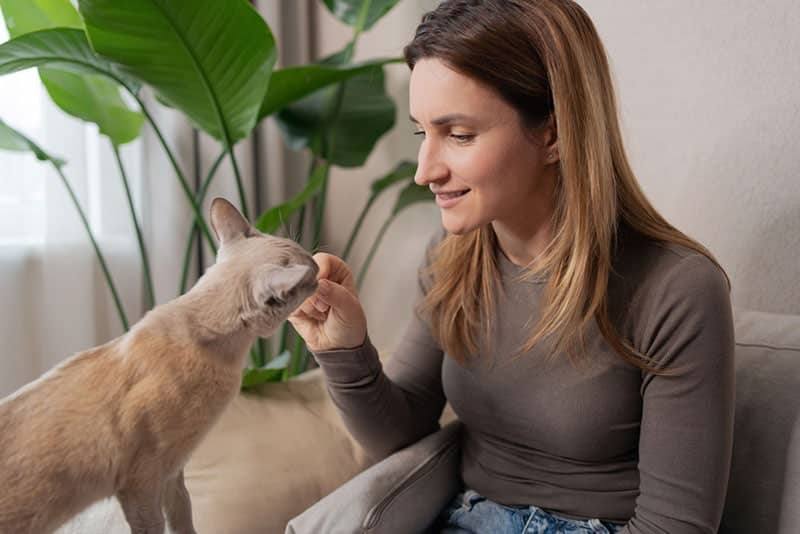Click to Skip Ahead
Cats come in various sizes, colors, and personalities, so there is no one-size-fits-all when it comes to naming a feline. Naming a new cat family member can be challenging, especially if one doesn’t immediately spring to mind. With a bit of inspiration, however, the name-choosing process can actually be fun! Here’s a list of more than 400 cat names that start with the letter A to get you started.
How to Name Your Cat
Choosing a name for your cat should be a fun experience and give you an opportunity to think outside of the box. Think beyond names like Fluffy and Simba, and consider something less common. One great way is to narrow things down, like choosing one letter from the alphabet. This list focuses on the letter A.
When perusing this collection of name suggestions, keep your kitty’s unique personality and temperament in mind. Try to pick a name that reflects your cat’s personality so people can get to know them just by learning their name. If your kitty is dainty and refined, something sophisticated might be a good match. Conversely, if your cat is big and energetic, consider something fun and cute.
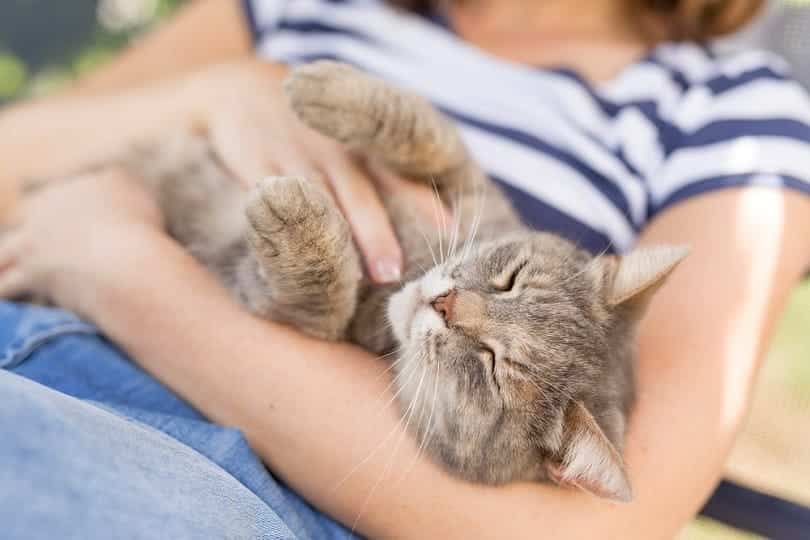
 Cute and Funny Male Cat Names That Start With A
Cute and Funny Male Cat Names That Start With A
If you’re looking to name a goofy cat or one that has a spritely personality, consider one of the following cute and funny names for a male:
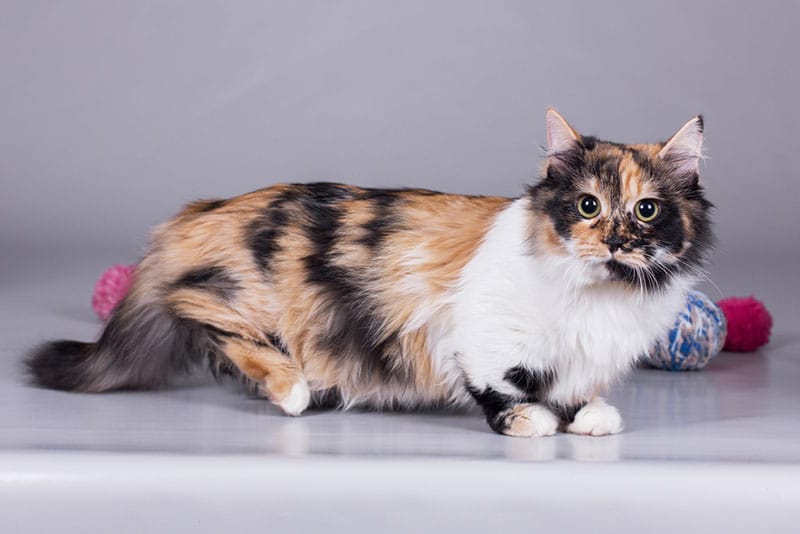
- Alfie
- Air
- Alezan
- Aladdin
- Alanus
- Arrow
- Agosto
- Archer
- Akio
- Arrow
- Atlas
- Axel
- Aviv
- Apoorv
- Aso
- Art
- Anneco
- Amedeo
- Attila
- Acetone
- Aashay
- Amp
- Aqua
- Amilio
- AJ
- Algae
- Ashu
- Amale
- Armani
- Anant
- Anakin
- Agrican
- Agathon
- Ansel
- Ashu
- Amide
- Anouk
- Alfredo
- Ant
- Aves
- Ali
- Ayan
- Ash
- Akil
- Ambrosi
- Anzo
- Abou
- Amad
- Aitor
- Amir
- Aitor
- Abbud
- Anzo
- Aliocha
- Abbas
- Angus
- Anzo
- Affif
- Aves
- Amethyst
- Acai
- Abha
- Arpit
- Avatar
- Abo
- Arian
- Aymard
- Ahi
- Auger
- Achilles
- Anish
- Ankle Biter
- Ambassador
- Artful Dodger
- Austin Meowers
- Absalom
- Amity
- Albus
- Alien
- Avalanche
- Alabaster
- Abyss
- Adorable
- Aero
- Alias
- Arlo
- Aasgard
- Aaric
- Abra
- Acacius
- Albus Dumbledore
- Admiral
- Alibi
- Alcatraz
- Apreggio
- Ajax
- Alfalfa
- Adidas
- AirRaid
- Ashes
- Alabama
- Ambercrombie
- Amewsed
- Abendigo
- Arf
- Agent 007
- Ashfall
- Acat
- Abendigo
- Ampersand
 Sophisticated Male Cat Names That Start With A
Sophisticated Male Cat Names That Start With A
Sometimes, a sophisticated name is called for when a cat is quiet and refined. Many male cats can fit into this category, and they deserve names that show off their “grown-up” personalities. Here are 100 sophisticated male cat names starting with an A to consider:
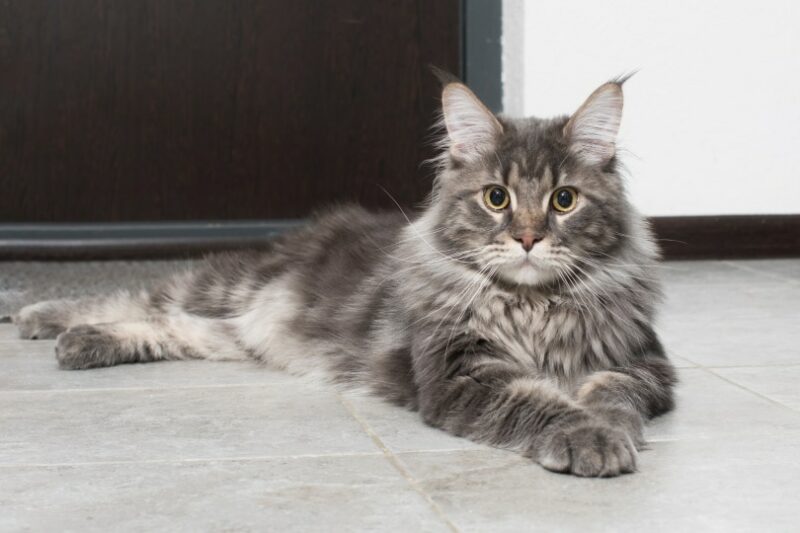
- Aiden
- Augustine
- Arnold
- Allan
- Alexander
- Apollo
- Armando
- Aesop
- Alphonse
- Austin
- Agosto
- Arnaud
- Anthony
- Alberto
- Atticus
- Aaron
- Alvin
- Asadel
- Ahmed
- Arwen
- Abner
- Anders
- Abner
- Artemis
- Alvon
- Anderson
- Amethyst
- Albert
- Aden
- Akram
- Amiel
- Alix
- Alric
- Alexei
- Aloj
- Amren
- Anshul
- Adriano
- Alok
- Archimbaud
- Aarin
- Amos
- Adarsh
- Adolphus
- Aurelio
- Acelin
- Aubin
- Anatola
- Alvarez
- Adarsh
- Alok
- Arans
- Astro
- Absalom
- Anderson
- Amore
- Akiko
- Abbott
- Amen
- Arthur
- Asimov
- Albrecht
- Amerito
- Azmodius
- Arlington
- Aegyptos
- Aster
- Amadeus
- Adirondak
- Azrael
- Akeel
- Aramis
- Argo
- Aiko
- Abbstinot
- Agadore
- Ansel
- Anamokit
- Ansel
- Aptos
- Alero
- Algernon
- Angelo
- Affleck
- Aethelwolf
- Aamir
- Aldrich
- Algernon
- Anasazi
- Andreas
- Andronicus
- Ares
- Aristotle
- Arjun
- Atreyu
- Audubon
- Averett
- Armstrong
- Aurelius
- Adler
Cute and Funny Female Cat Names That Start With A
There are just as many cute and funny female cat names to choose from as there are for males. From unique options like Andromeda to adorable ones like Apple Pie, you’re sure to find something that you adore from this list:
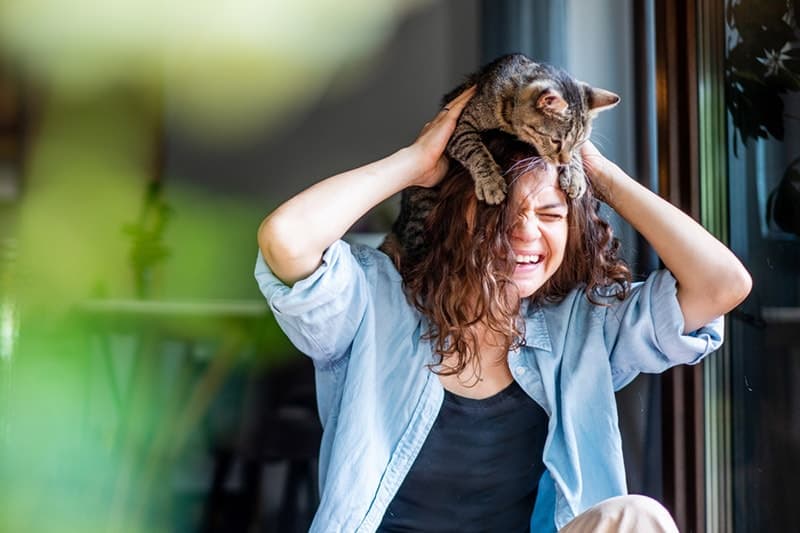
- Acacia
- Adorabella
- Aida
- Addie
- Allie
- Amber
- Amara
- Anastasia
- Ansa
- Arabel
- Arachna
- Andromeda
- Amnesty
- Amethyst
- Ameribells
- Astilbe
- Aurora
- Ava
- Aslauga
- Ariel
- Aphrodite
- Autumn
- Astoria
- Ari
- Anya
- Avril
- Azalea
- Azure
- Allure
- Alyssa
- Allspice
- Alosha
- Alice
- Amiga
- Attica
- Akamai
- Angel
- Aggie
- Armanda
- Aura
- Aethra
- Aunt Kat
- Aska
- Atte
- Angelina
- Amore
- Anishka
- Aska
- Arietty
- Alina
- Adelaida
- Alika
- Ambrosia
- Annapurna
- Alma
- Ariela
- Amazing Grace
- Amalthea
- Apple Pie
- Angelee
- Aenias
- Aleta
- Agatie
- Anabel
- Alla
- Alani
- Angelee
- Agnes
- Allegra
- Azzuka
- Aimee
- Amulet
- Afonia
- Anika
- Asti
- Amandine
- Arugula
- Apricot
- Anatola
- Anish
- Aurelia
- Abree
- Abba
- Aloha
- Amazing
- Akantha
- Astra
- Arcadia
- Babby-Normal
- Aviva
- Avril
- Auntie
- Astoria
- Aughra
- Aine
- Acantha
- Adalie
- Alaska
- Akuna
- Adratea
- Abena
- Abra
- Algaia
- Amma
- Abeba
- Alectronica
- Aditi
- Aerosol
- Alive
- America
Sophisticated Female Cat Names That Start With A
There are plenty of female cats that would be better suited to a sophisticated name rather than something cute and airy. Check out these interesting options:
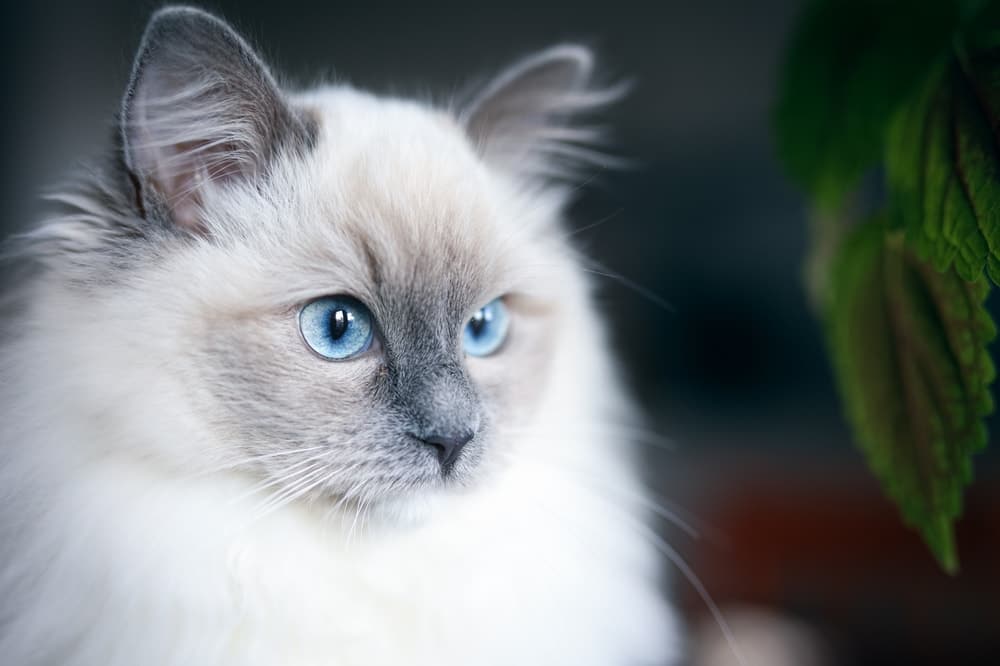
- Adriana
- Adrastea
- Aspen
- Abeba
- Annabelle
- Abequa
- Acantha
- Adhava
- Addison
- Aisling
- Amaretto
- Audrey
- Aria
- Ashley
- Aurora
- Avery
- Amelia
- Abigail
- Athena
- Adoria
- Anika
- Alicia
- Alessia
- April
- Ariza
- Audrey
- Addie
- Angelica
- Akosia
- Azami
- Alizah
- Adameena
- Alexia
- Amadine
- Augustina
- Anshu
- Adelita
- Achima
- Aele
- Arola
- Aidala
- Aschy
- Alcina
- Auburn
- Abuela
- Anja
- Annette
- Avela
- Anisia
- Anora
- Addie
- Avery
- Absalom
- Azalea
- Acacia
- Agnes
- Anya
- Ariana
- Amma
- Aglaia
- Adeline
- Alazne
- Ahava
- Addison
- Astoria
- Alessandra
- Archipelago
- Aretha
- Abney
- Adrienne
- Agatha
- Amarosa
- Akuchi
- Adalia
- Alazne
- Akantha
- Amma
- Adrastea
- Astoria
- Augusta
- Anastasia
- Aurelia
- Addison
- Ashton
- Amara
- Aspen
- Amaya
- Alani
- Aubree
- Alayna
- Aitana
- Asa
- Alessia
- Amina
- Antonella
- Alondra
- Amani
- Ariah
- Adley
- Arlet
Final Thoughts
No matter what name you choose for your cat, you can rest assured that they won’t care about their name nearly as much as you do. So, choose something that rolls off the tongue and gives you positive feelings whenever you think of it. You’ll be using the name for many years to come, after all!
See also:
Featured Image Credit: Julija Sulkovska, Shutterstock

